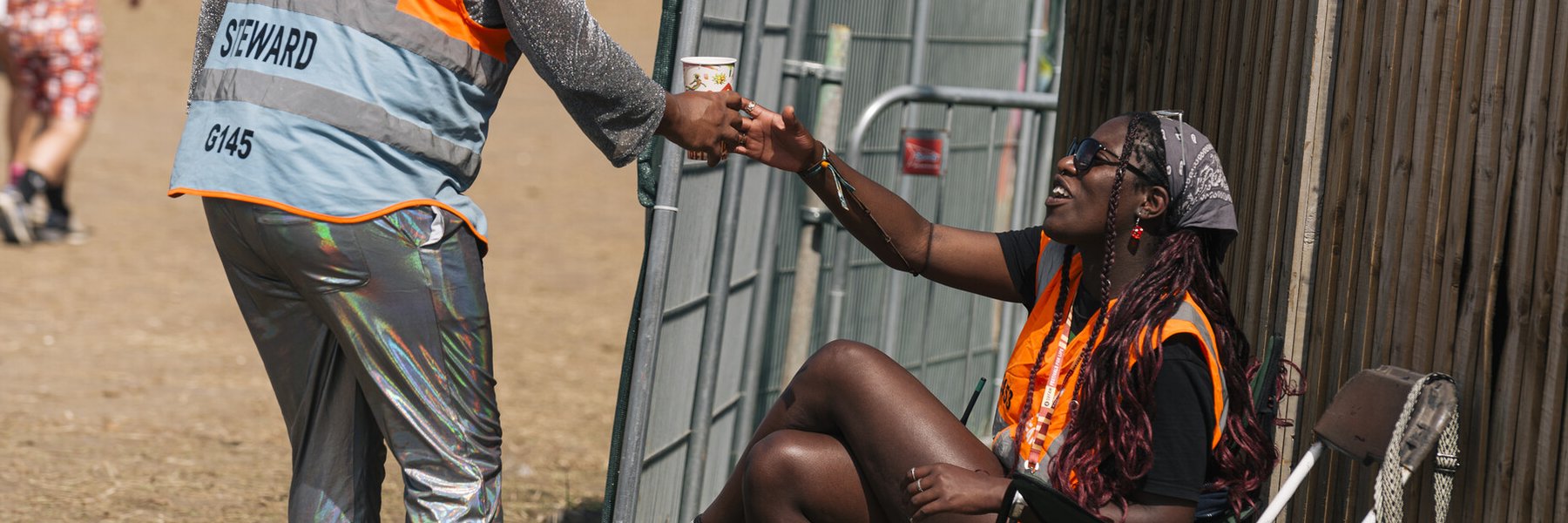Your safety and well-being are our top priorities, and we want every volunteer to have a comfortable and enjoyable experience. As part of our commitment to you, we strive to ensure that all volunteers receive the support they need while on shift.
We encourage open and honest communication with your supervisor—if you have any concerns or need additional support, please don’t hesitate to speak with them. They will open a dialogue with you at the start of your shift. They’re there to help ensure you have the best possible experience while volunteering.
While on shift, all volunteers can:
- Move around as needed
- Use the toilet
- Get a drink
- Have snacks
- Take short breaks
- Sit occasionally
As long as your position is covered by another steward.
Additionally, every volunteer is entitled to a longer 30-minute break at a time agreed with their supervisor.
To further enhance on-shift support, our supervisors will receive additional training to ensure they can effectively assist volunteers and foster a supportive and inclusive environment for everyone.


